Although Ireland officially joined the EEC in January 1973, the Treaty of Rome was actually signed in 1972. And after that official signing ceremony in Brussels, the after party was held in the Irish College in Leuven. This, the college CEO David Grant tells Irish Country Living, shows the significance of the Irish College to both Irish and EU history.
For over 400 years, the College – which is less than an hour from Brussels – has been hosting students. However, up to 1984, these students were not the third-level masters candidates that now utilise the facility. They were young men training to be priests.
David explains the history of the building, which dates back to the late 1500s when religious wars were raging in Europe and Ireland.
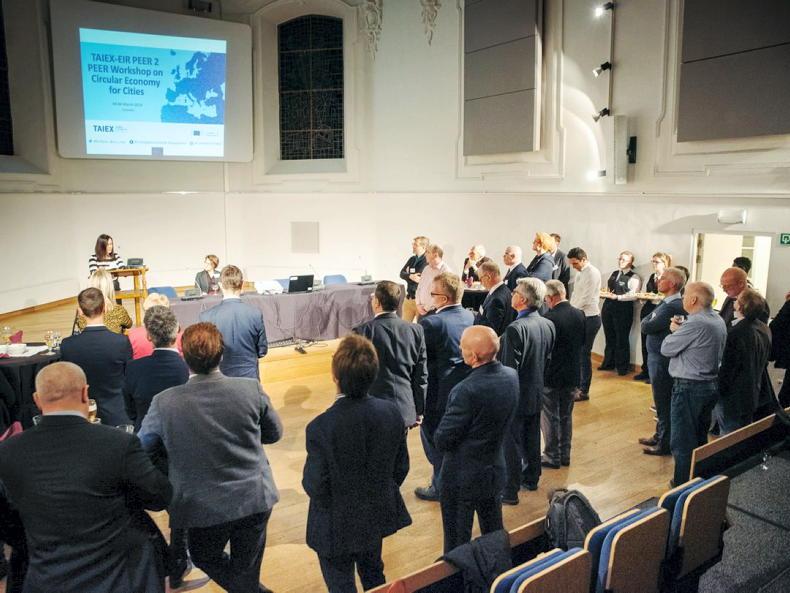
The aim of these wars in Ireland, he says, was “to erode the old Gaelic Irish identity of which Catholicism was a big part of”. Many trainee priests had to go underground and with that Irish colleges started to appear across the continent. Of the 33 of them at that time, Leuven is the only one that remains.
The seminary was established in Leuven by Florence Conry, who was himself a student at the Irish College in Salamanca in Spain and a relative of Hugh O’Neill. In 1607, Conry brought O’Neill and his entourage to Leuven following their departure from Ireland. That journey became known as the Flight of the Earls.
The modern college
Fast forward through a number of wars and changes of use to 1984 and the Irish College was no longer needed for seminary work. Vocations were falling and priesthood training was being done in different ways. The Franciscans found themselves with a fine campus with a question mark over it. Conscious of the Irish history connected with the building, they wanted to preserve the college as an asset for Ireland, as it had been for 400 years. They thus established the not-for-profit organisation operating today with a view to providing education and training programmes.
“We’re an all-island body with offices in Dublin and Belfast. We engage with the education sector, the public sector, community voluntary groups and business organisations as well,” says David.
The college offers services as an education centre, but he explains: “We’re not offering courses that are in competition with Irish universities. We see it as adding value to what’s taking place there already.
“With 59 bedrooms – 130 beds – we can accommodate quite large groups if everybody is prepared to share.”
Place in Europe
When the not-for-profit organisation was established in 1984, Ireland was only 11 years in the EEC [EU]. At that point, access to Brussels, access to the institutions, access to policymaking, was very much to the fore. Connectivity wasn’t what it is today so people came over for longer periods of time, a lot of them civil servants. Ireland is now much more embedded in the EU institutions.

David Grant.
“So we don’t have an agri programme. We don’t have a science programme. We don’t have a medical programme or a business programme. Everything we do is tailored to what that client wants,” David says.
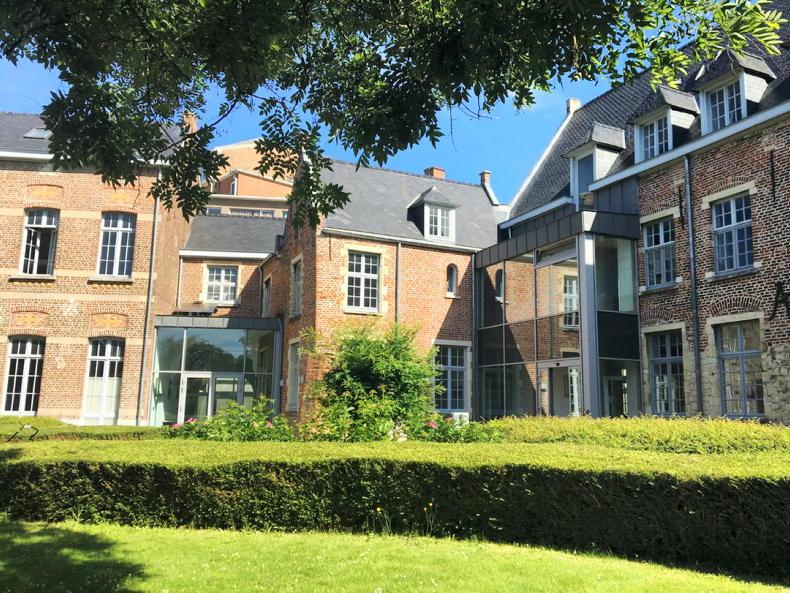
If a college requests an agricultural programme, the college will organise meetings with DG AGRI [European Commission’s Directorate General for Agriculture and Rural Development] to get a policy overview or access to agri meetings at the parliament.
“Some groups meet with COPA COGECA (farming and co-op representative group in Brussels) around biodiversity and soil and climate action. Liam McHale (EU director with the IFA) is a really good supporter and will often come to the college to talk to students about agri issues. This is not just agri students but business students to talk about agriculture in a business context, which is equally relevant,” says David.
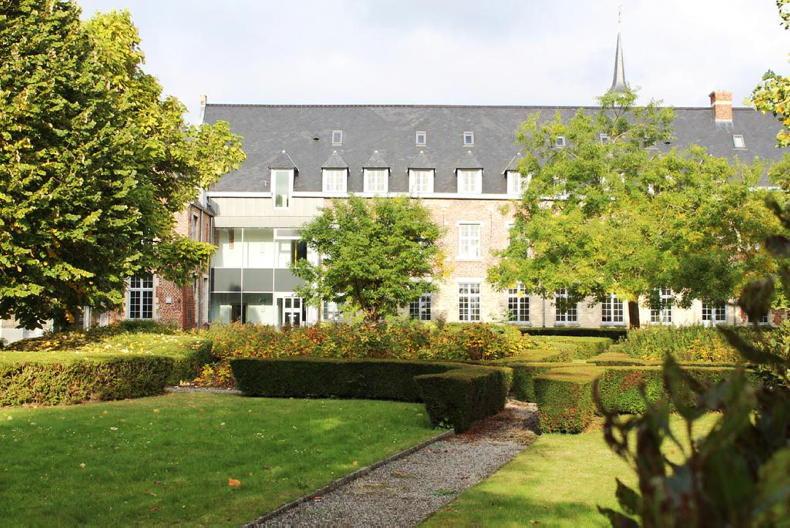
Last April a UCD Environment Policy group attended a programme. “Experts came to talk to them about EU environmental projects. They get the macro stuff from the European Commission, the projects that are running and the money that’s available. But, us, we get them out to see how does that translate on the ground? How are the stakeholders being engaged? What are the pitfalls and learnings? They learned more by meeting the people who are running those projects, finding out what worked and what didn’t. It’s that learning that we hope they would bring back to the courses that they’re doing in university so that they are wider informed.”
Although it is mostly master’s students, the college runs programmes for secondary school and undergraduate level also.
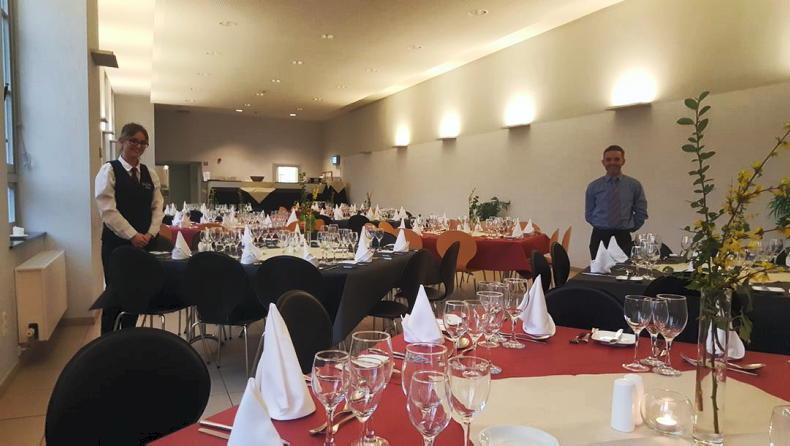
“We did a project a few years ago called ‘My adopted soldier’ with a teacher in Glenties, Co Donegal. We had 32 students, one from each county in Ireland, that researched a soldier from their own county and they came here to see the graves or the names on the wall in Tynecot. Nationwide covered that and it was all for 15- to 16-year-olds.”
David is claiming St Patrick. He says that others may disagree but they stand over their assertion that St Patrick’s Day was founded at the Irish College. He explains how.
“In the 1640s, there was a revision of the Roman calendar and there was no Irish saint’s name on the calendar. Again, the Franciscans said, ‘this is part of Irish identity, we have to have at least one saint on the calendar’. So they picked St Patrick and petitioned Rome for his inclusion and were successful. The 17 March was picked as that is apparently the date he died.
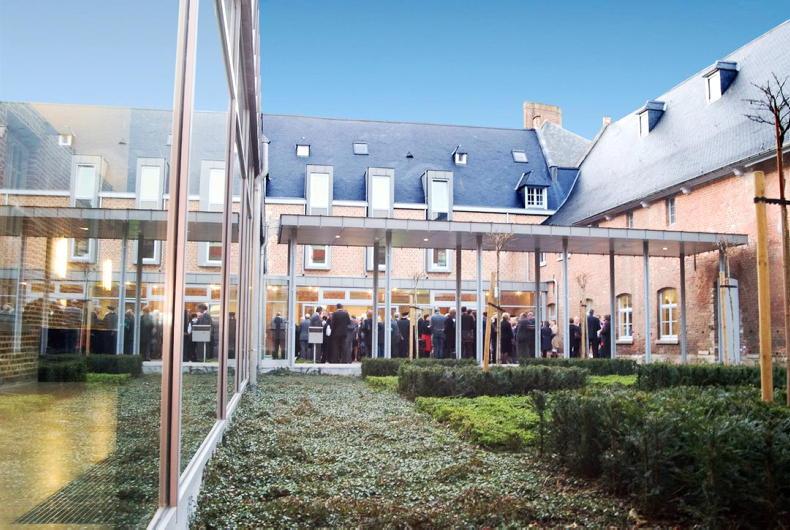
Printing, David tells me, was the internet of its day. They would have printed religious documents written in the Irish language to be sent to Ireland. The first ever Irish language dictionary was printed in the college.
The font, however, was a problem as Irish language shapes were different to Latin fonts so they had difficulty recreating that print, which is why they established their own printing press.
One of the friars created the alphabet in his hand and then created the plates for which the letters were cast.
That became known as the Leuven font and that was part of the script that was written on the old Irish currency, the old punt.
Read more
Catch, cook and craic in Howth
Creating creative kids in Kilkenny
Although Ireland officially joined the EEC in January 1973, the Treaty of Rome was actually signed in 1972. And after that official signing ceremony in Brussels, the after party was held in the Irish College in Leuven. This, the college CEO David Grant tells Irish Country Living, shows the significance of the Irish College to both Irish and EU history.
For over 400 years, the College – which is less than an hour from Brussels – has been hosting students. However, up to 1984, these students were not the third-level masters candidates that now utilise the facility. They were young men training to be priests.
David explains the history of the building, which dates back to the late 1500s when religious wars were raging in Europe and Ireland.

The aim of these wars in Ireland, he says, was “to erode the old Gaelic Irish identity of which Catholicism was a big part of”. Many trainee priests had to go underground and with that Irish colleges started to appear across the continent. Of the 33 of them at that time, Leuven is the only one that remains.
The seminary was established in Leuven by Florence Conry, who was himself a student at the Irish College in Salamanca in Spain and a relative of Hugh O’Neill. In 1607, Conry brought O’Neill and his entourage to Leuven following their departure from Ireland. That journey became known as the Flight of the Earls.
The modern college
Fast forward through a number of wars and changes of use to 1984 and the Irish College was no longer needed for seminary work. Vocations were falling and priesthood training was being done in different ways. The Franciscans found themselves with a fine campus with a question mark over it. Conscious of the Irish history connected with the building, they wanted to preserve the college as an asset for Ireland, as it had been for 400 years. They thus established the not-for-profit organisation operating today with a view to providing education and training programmes.
“We’re an all-island body with offices in Dublin and Belfast. We engage with the education sector, the public sector, community voluntary groups and business organisations as well,” says David.
The college offers services as an education centre, but he explains: “We’re not offering courses that are in competition with Irish universities. We see it as adding value to what’s taking place there already.
“With 59 bedrooms – 130 beds – we can accommodate quite large groups if everybody is prepared to share.”
Place in Europe
When the not-for-profit organisation was established in 1984, Ireland was only 11 years in the EEC [EU]. At that point, access to Brussels, access to the institutions, access to policymaking, was very much to the fore. Connectivity wasn’t what it is today so people came over for longer periods of time, a lot of them civil servants. Ireland is now much more embedded in the EU institutions.

David Grant.
“So we don’t have an agri programme. We don’t have a science programme. We don’t have a medical programme or a business programme. Everything we do is tailored to what that client wants,” David says.

If a college requests an agricultural programme, the college will organise meetings with DG AGRI [European Commission’s Directorate General for Agriculture and Rural Development] to get a policy overview or access to agri meetings at the parliament.
“Some groups meet with COPA COGECA (farming and co-op representative group in Brussels) around biodiversity and soil and climate action. Liam McHale (EU director with the IFA) is a really good supporter and will often come to the college to talk to students about agri issues. This is not just agri students but business students to talk about agriculture in a business context, which is equally relevant,” says David.

Last April a UCD Environment Policy group attended a programme. “Experts came to talk to them about EU environmental projects. They get the macro stuff from the European Commission, the projects that are running and the money that’s available. But, us, we get them out to see how does that translate on the ground? How are the stakeholders being engaged? What are the pitfalls and learnings? They learned more by meeting the people who are running those projects, finding out what worked and what didn’t. It’s that learning that we hope they would bring back to the courses that they’re doing in university so that they are wider informed.”
Although it is mostly master’s students, the college runs programmes for secondary school and undergraduate level also.

“We did a project a few years ago called ‘My adopted soldier’ with a teacher in Glenties, Co Donegal. We had 32 students, one from each county in Ireland, that researched a soldier from their own county and they came here to see the graves or the names on the wall in Tynecot. Nationwide covered that and it was all for 15- to 16-year-olds.”
David is claiming St Patrick. He says that others may disagree but they stand over their assertion that St Patrick’s Day was founded at the Irish College. He explains how.
“In the 1640s, there was a revision of the Roman calendar and there was no Irish saint’s name on the calendar. Again, the Franciscans said, ‘this is part of Irish identity, we have to have at least one saint on the calendar’. So they picked St Patrick and petitioned Rome for his inclusion and were successful. The 17 March was picked as that is apparently the date he died.

Printing, David tells me, was the internet of its day. They would have printed religious documents written in the Irish language to be sent to Ireland. The first ever Irish language dictionary was printed in the college.
The font, however, was a problem as Irish language shapes were different to Latin fonts so they had difficulty recreating that print, which is why they established their own printing press.
One of the friars created the alphabet in his hand and then created the plates for which the letters were cast.
That became known as the Leuven font and that was part of the script that was written on the old Irish currency, the old punt.
Read more
Catch, cook and craic in Howth
Creating creative kids in Kilkenny











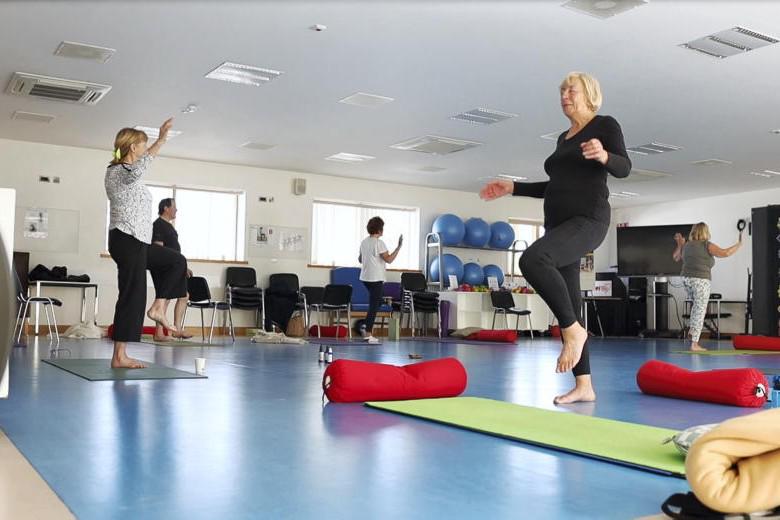
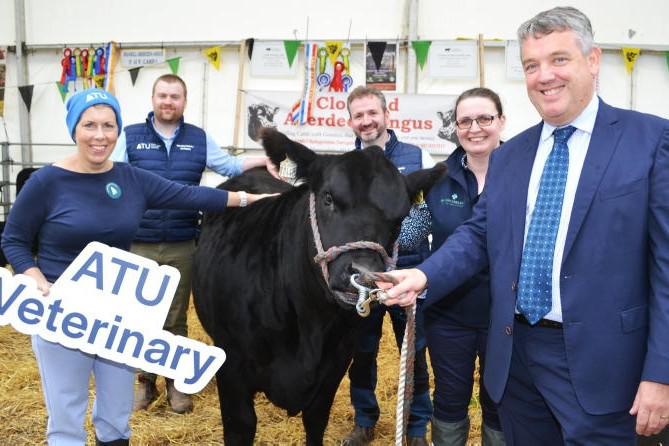
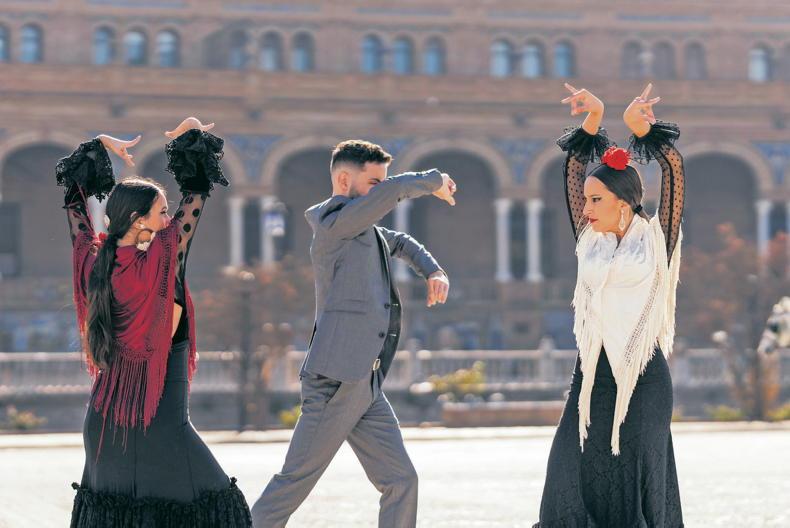
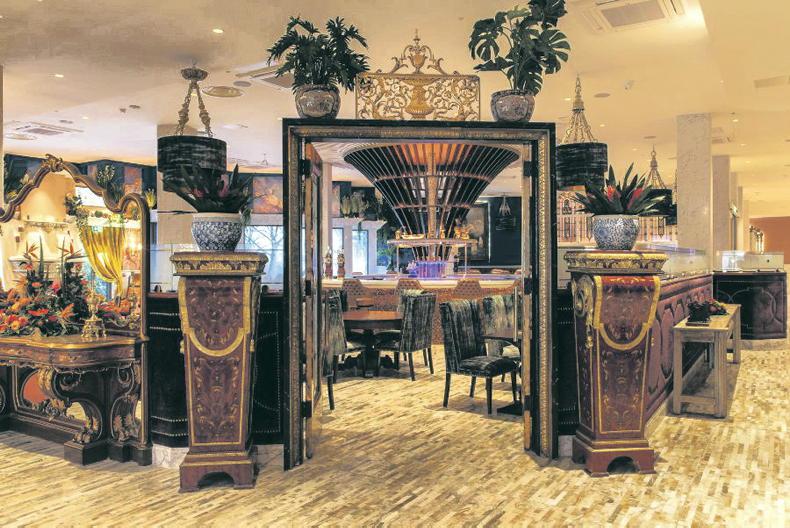
SHARING OPTIONS